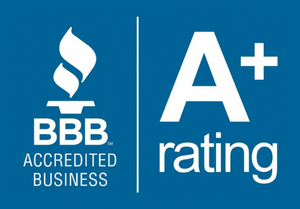Skip Trace is the process of locating a person’s whereabouts using known information or locating unknown information and using many methods including technology; research sites, background sites, social media, government records, interviews of people and any other method available to locate a person.
The term “skiptrace” is defined as the act of trying to locate someone. A person whose job it is to find people is called a skip tracer or private investigator such as Dave Johnson. The word “skip” in this context refers to the individual being sought after, and comes from the expression “to skip town”, meaning leaving quickly without many clues leading to their whereabouts.
Tracing methods may be used by anyone looking for someone who does not have their contact information readily accessible, such as a skip tracer, contact tracer, debt collector, process server, bail bondsman or bail agency enforcer (bounty hunter), repossession agent, bail enforcement agent, private investigator, lawyer, police detective, journalist. Private investigators have utilized comparable strategies in criminal cases to locate witnesses.
Tracing is made up of several phases. The first step is to go over the data supplied by the customer and check for any inaccuracies about who the subject is. Then we’ll study and collect as much information as possible about them. Finally, we’ll go through all of the gathered material and remove anything that isn’t necessary, as well as cross-reference it for accuracy.
The only time to usually locate someone is when that person isn’t purposely hiding and there aren’t a lot of false details surrounding them. The task generally requires more than just research because we must often utilize methods of social engineering. This involves calling or visiting the individual’s previous neighbors or other known contacts to inquire about him or her, sometimes while pretending to be somebody else entirely.
A skip tracer’s work may involve looking through phone number databases, credit reports, employment records, and other data sources to find a person. Checks usually include criminal backgrounds, indebtedness (from loan or credit card applications), utility bills (electricity, gas etc.), social security info., disability benefits history and public tax information.
While some of these records may be publicly available, some cannot be accessed without an appropriate search warrant or a specific permissible purpose, which is generally only available to financial institutions, law enforcement or licensed private investigators. However, even when no specific information is returned from the search public and private databases still exist that cross-reference skip tracing information with others who the “skip” may have lived with in close proximity (i.e recent past).
For example, if prior records display that a “skip” once resided in the same home as another person, then that other individual may also be skip traced in an attempt to find the primary target. In the past, skip tracing used to entail things like scavenging through dumpsters and making false pretense calls to utility companies. Nowadays, though, skip tracing is mostly conducted online by way of paid databases and phone calls to collect and confirm information. Social media platforms such as Facebook have greatly made it easier to do skip trace work compared to before.
While it is possible to find somebody without any help, the process can often be quite time-consuming and difficult. This is why many people choose to hire a private investigator like Dave Johnson instead. A private investigator will usually have access to databases and resources that the average person doesn’t, which can make the process of finding somebody much easier. They will also generally have a lot of experience in the field, which can be invaluable when it comes to tracking down a person. Hiring a private investigator is often the best option for those who need to find somebody quickly and efficiently.

